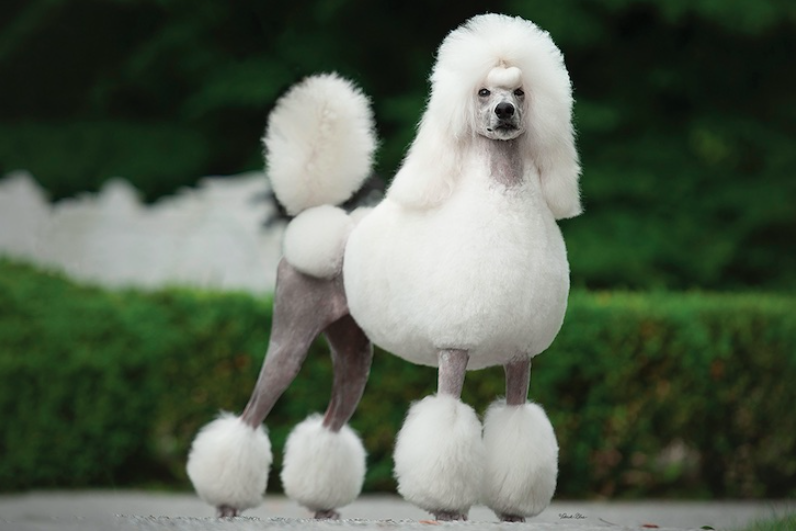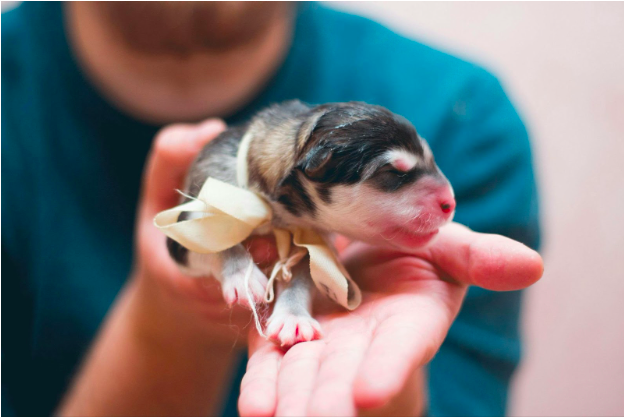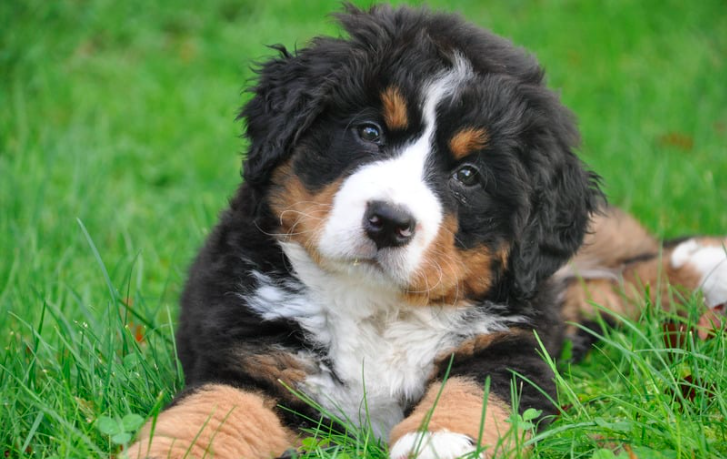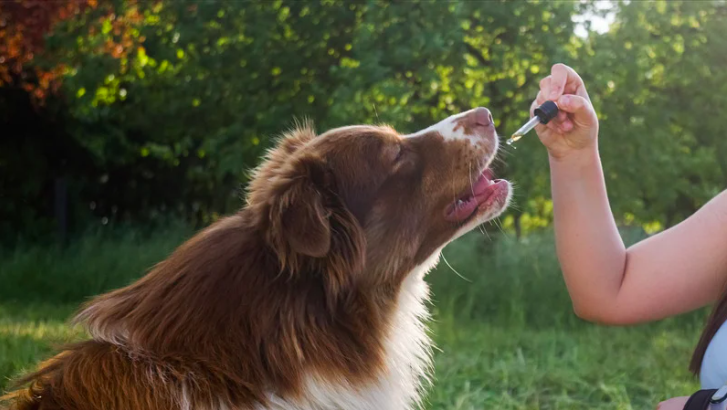Dogs
Shorkie Dog Breed: A Comprehensive Guide To This Adorable Hybrid

Shorkie Dog Breed: A Comprehensive Guide To This Adorable Hybrid
Are you looking for a new furry friend to add to your family? Look no further than the Shorkie dog!
This adorable mixed breed is a cross between a Shih Tzu and a Yorkshire Terrier, and they are gaining popularity among dog lovers worldwide.
In this article, we will give you a comprehensive guide on everything you need to know about the Shorkie dog. From their temperament to their health concerns, we have got you covered.
What Is A Shorkie Dog?
Before we dive into the details, let’s define what a Shorkie dog is. As mentioned earlier, a Shorkie dog is a cross between a Shih Tzu and a Yorkshire Terrier.
They are also known as Yorkie Tzus, Shih Tzu Yorkies, or Shorkies. This designer breed is recognized by the Designer Breed Registry (DBR) and the American Canine Hybrid Club (ACHC).
History
The Shorkie dog breed is a relatively new designer dog breed that was developed in the United States by crossing a Shih Tzu and a Yorkshire Terrier.
It is believed that the breed was first developed in the 1990s when breeders began crossing these two popular toy breeds to create a dog that was small, cute, and affectionate.
The Shih Tzu is an ancient breed that originated in China, where it was bred to be a companion dog for royalty.
The Yorkshire Terrier, on the other hand, was developed in the 19th century in Yorkshire, England, to be a small hunting dog for catching rats and other vermin in textile mills and mines.
By crossing these two breeds, breeders hoped to create a small, hypoallergenic dog with a sweet and affectionate personality that would make an excellent family pet.
Today, the Shorkie is a popular designer dog breed that is loved for its cute appearance, friendly personality, and adaptability to different living situations.
Appearance
The Shorkie is a small dog breed that typically weighs between 4 and 16 pounds and stands between 6 and 14 inches tall at the shoulder.
They have a cute and fluffy appearance with long, silky hair that comes in a variety of colors, including black, white, gold, and brown.
Some Shorkies may also have a mix of these colors in their coat. Their head is round with a short muzzle and a black nose.
Their eyes are large and round, and they have long floppy ears that hang down close to their face. Their body is compact and muscular, with a short tail that is usually curled over their back.
Overall, the Shorkie has a cute and cuddly appearance that makes them a popular choice for families and individuals looking for a small, affectionate pet.
Size
The Shorkie is a small dog breed that typically weighs between 4 and 16 pounds and stands between 6 and 14 inches tall at the shoulder.
They are considered a toy or miniature breed, depending on their size. The size of a Shorkie can vary depending on its genetics and the size of its parents.
However, in general, they are small enough to be comfortably kept in smaller living spaces, such as apartments or smaller homes. They are also a great choice for people who may not have the physical ability to handle a larger dog.
Their small size also makes them a good choice for families with children, as they are not likely to accidentally knock over or overpower young kids.
Despite their small size, Shorkies are still energetic and playful and require daily exercise and playtime to stay happy and healthy.
Personality
The Shorkie is a breed that is known for its affectionate and friendly personality. They are social dogs that enjoy being around people and other pets. They have a playful and outgoing nature that makes them great companions for families with children.
Shorkies are also known to be loyal and protective of their owners, which can make them good watchdogs. They are not typically aggressive but may bark to alert their owners of potential danger.
Training and socialization are important for Shorkies to help them develop good manners and behavior. They are intelligent dogs that are eager to please their owners, making them relatively easy to train.
Positive reinforcement methods are recommended for training, as they respond well to praise and treats. Shorkies also thrive on attention and affection and may become anxious or depressed if left alone for long periods of time.
They do best in homes where they can be with their owners for most of the day, and may not be the best choice for people who work long hours outside of the home.
Temperament
The Shorkie has a happy and energetic temperament, and is often described as being a “people person” or “lap dog”.
They love to be around their owners and will often follow them around the house. They are affectionate dogs that enjoy cuddling and being petted.
While Shorkies are generally friendly with people and other animals, it is important to socialize them properly from a young age to prevent any potential behavioral problems.
They may be wary of strangers and may bark to alert their owners of potential danger.
Shorkies can also be quite playful, and enjoy playing with toys and running around in the yard. They have a moderate energy level and require daily exercise to keep them happy and healthy.
Overall, the Shorkie is a loving and social dog that makes a great companion for families or individuals who are looking for a small dog with a big personality.
Coats And Grooming
Shorkies have thick and fluffy coats that can be either straight or curly. Their coat may be long or short, depending on their parents’ genetics.
They can come in a variety of colors, including black, brown, white, and gold. Due to their thick and fluffy coat, Shorkies require regular grooming to prevent matting and tangling.
Daily brushing is recommended to keep their coat healthy and tangle-free. A monthly bath with a gentle shampoo is also recommended to keep their coat clean and smelling fresh.
It is also important to trim their nails regularly, as overgrown nails can cause discomfort and even lead to health problems. In addition, regular dental care is important to prevent dental problems such as gum disease and tooth decay.
Overall, while the Shorkie’s coat can require some maintenance, their small size makes them easy to groom and care for. With proper grooming and care, your Shorkie can have a healthy and beautiful coat.
Training And Socialization
Training and socialization are essential for any dog, and the Shorkie is no exception. Early training and socialization will help your Shorkie grow up to be a well-behaved and well-adjusted dog.
Shorkies are intelligent and eager to please, which makes them relatively easy to train. They respond best to positive reinforcement training methods, such as praise, treats, and playtime.
Consistency is key when training a Shorkie, so make sure to establish clear rules and stick to them. Socialization is also important for Shorkies, as they can be wary of strangers and other dogs if not properly socialized from a young age.
Introduce your Shorkie to different people, places, and situations to help them feel comfortable and confident in various environments.
Enrolling your Shorkie in obedience classes or working with a professional trainer can also be helpful for training and socialization. These classes can provide structured training sessions and opportunities for your Shorkie to socialize with other dogs and people.
Remember to keep training sessions short and fun, as Shorkies can have short attention spans. With patience and consistency, your Shorkie can become a well-behaved and well-socialized companion.
Exercise Need and Activity Levels
Despite being small in size, Shorkies have a moderate level of energy and require a daily dose of exercise to keep them happy and healthy.
The exact amount of exercise needed varies depending on the individual dog’s age, health, and activity level, but generally, Shorkies need at least 30 minutes of exercise per day.
Shorkies love to play, so interactive games like fetch or tug-of-war are great ways to get them moving. They also enjoy going on short walks and exploring their surroundings.
However, it’s important to keep in mind that Shorkies are not high-energy dogs and can get tired easily, so it’s important not to over-exercise them.
It’s also essential to provide mental stimulation for Shorkies, as they are intelligent dogs that enjoy learning new things. Training sessions that incorporate both physical and mental exercise are ideal for keeping your Shorkie engaged and happy.
Puzzle toys and interactive treat dispensers can also provide mental stimulation and prevent boredom.
Overall, while Shorkies don’t require a lot of exercise, they still need regular physical and mental stimulation to stay happy and healthy. With the right amount of exercise and mental stimulation, Shorkies make wonderful and loving companions.
Health Issues
Like any other dog breed, Shorkies can be susceptible to certain health issues. Although not all Shorkies will experience these issues, it’s important to be aware of the potential health concerns when considering this breed.
One of the most common health issues in Shorkies is dental problems. Due to their small size, Shorkies can be prone to tooth decay and gum disease, especially if their teeth are not brushed regularly.
It’s important to establish a good dental hygiene routine for your Shorkie, including regular brushing and dental check-ups.
Shorkies may also be prone to eye problems, including cataracts and glaucoma. Regular eye exams can help to identify any potential issues and ensure they are treated promptly.
Other potential health issues in Shorkies include patellar luxation (kneecap dislocation), hypoglycemia (low blood sugar), and respiratory problems.
It’s important to work with a reputable breeder who screens their breeding dogs for these health issues and takes steps to reduce the risk of passing them on to their puppies.
Overall, with proper care and attention, Shorkies can live long, healthy lives. Regular veterinary check-ups, a healthy diet, and regular exercise can help to keep your Shorkie in good health.
Care And Living Needs
Shorkies are low-maintenance dogs when it comes to exercise and living needs. However, they require proper care and attention to stay healthy and happy.
Grooming is an important part of Shorkie care. Their coats should be brushed daily to prevent matting and tangling. Regular bathing and trimming of nails are also necessary.
Dental hygiene is critical, as small dogs are prone to dental problems. Brushing their teeth daily with a dog toothbrush and toothpaste can help prevent tooth decay and gum disease.
Shorkies are indoor dogs and do not tolerate extreme temperatures well. They are suitable for apartment living and do not require a large living space.
They enjoy being close to their owners and should have access to a comfortable bed and a few toys. Training and socialization are essential for Shorkies.
These dogs are eager to please and love to learn new things. They respond well to positive reinforcement training techniques and should be trained from an early age to prevent stubbornness.
In terms of diet, Shorkies require high-quality dog food that meets their nutritional needs. Feeding them small meals throughout the day instead of one large meal can help prevent digestive problems.
Treats should be given in moderation, as Shorkies are prone to weight gain. Regular visits to the veterinarian are necessary to ensure that Shorkies are up to date on vaccinations and to monitor their health.
Annual checkups can detect health problems early and ensure that they receive prompt treatment. In summary, Shorkies require daily grooming, indoor living, regular exercise, and a high-quality diet to stay healthy and happy.
Proper training and socialization are crucial for their well-being, and regular visits to the vet are necessary to monitor their health. With proper care and attention, Shorkies can make great companions for many years.
Diet and Nutrition
Diet and nutrition are crucial aspects of Shorkie care. As a small breed, Shorkies have small stomachs and high metabolisms, meaning they need to be fed smaller meals more frequently throughout the day.
It is recommended to feed Shorkies high-quality, protein-rich dog food that is formulated for small breeds. The food should also contain the necessary nutrients, vitamins, and minerals that the dog needs to thrive.
As with all dogs, it is important to monitor their weight and adjust their diet accordingly. Overfeeding and lack of exercise can lead to obesity, which can cause health problems for the dog.
It is also important to provide access to clean, fresh water at all times. Dehydration can cause a range of health problems and should be avoided at all costs.
Owners should also be aware of any food allergies or sensitivities that their Shorkie may have and adjust their diet accordingly. Consultation with a veterinarian can be helpful in developing a balanced and healthy diet plan for the Shorkie.
Children And Other Pets
Shorkie dogs are great with children and other pets if they are socialized properly.
As they are small dogs, they are suitable for families with children of all ages, but extra care should be taken with very young children to prevent accidents or rough play that could harm the dog.
When it comes to other pets, the Shorkie can generally get along well with cats and other small animals if they are raised together from a young age.
However, it is important to note that Shorkies, like most small dogs, have a high prey drive and may try to chase small animals. Socialization is key when it comes to ensuring that your Shorkie gets along well with children and other pets.
It is important to expose your Shorkie to a variety of people, animals, and environments from a young age to help them become well-rounded and adaptable.
As with any interaction between pets and children, it is important to supervise all playtime to prevent any accidents or injuries.
Overall, with proper training and socialization, Shorkies can make wonderful family pets and get along well with children and other pets.
Life Expectancy
The life expectancy of a Shorkie can vary depending on several factors such as diet, exercise, and genetics. Generally, Shorkies have a lifespan of 12 to 15 years, which is relatively long for a small dog breed.
However, it’s important to note that just like any other breed, Shorkies can develop health problems as they age, and regular visits to the vet can help identify and address any issues.
To help ensure a longer and healthier life for your Shorkie, it’s important to provide them with proper care, including regular exercise, a balanced diet, and routine check-ups with a veterinarian.
Additionally, early socialization and training can help prevent behavioral issues and promote a healthy relationship between you and your furry companion.
Overall, the Shorkie dog breed is a loving and affectionate pet that can make a great addition to any family. With their charming personality, adorable looks, and easy-going nature, it’s no wonder why they have become such a popular breed in recent years.
If you’re considering adding a Shorkie to your family, make sure to do your research and find a reputable breeder or rescue organization to ensure a healthy and happy life for your new furry friend.
Common Myths
As with any popular dog breed, there are a number of myths and misconceptions surrounding the Shorkie breed. Here are some of the most common ones:
- Shorkies are low-maintenance dogs: While Shorkies may be small in size, they require regular grooming and upkeep. Their long coats can easily become matted or tangled, and they need regular baths and haircuts to keep them looking their best.
- Shorkies are hypoallergenic: While some people may find Shorkies to be less allergenic than other dog breeds, they are not truly hypoallergenic. This means that people with allergies may still have a reaction to a Shorkie’s dander and saliva.
- Shorkies don’t need much exercise: While Shorkies don’t require a lot of exercise, they still need regular walks and playtime to keep them healthy and happy. A lack of exercise can lead to obesity and other health issues.
- Shorkies are all the same: Like any other breed, Shorkies can vary in size, appearance, and temperament. Just because you’ve met one Shorkie doesn’t mean that all Shorkies are the same.
- Shorkies are only good for apartments: While Shorkies may do well in apartments due to their small size, they can also thrive in larger homes with yards to run and play in. The key is to provide them with enough exercise and mental stimulation regardless of where they live.
Overall, it’s important to do your own research and get to know the individual Shorkie you are interested in before believing any myths or misconceptions about the breed.
Shorkie Dog vs. Other Breeds
The Shorkie dog breed is a unique and lovable breed that shares some characteristics with other popular breeds. Here are some comparisons between Shorkies and other dog breeds:
- Shorkie vs. Yorkie: Shorkies are a mix of Shih Tzu and Yorkie breeds, so they share many similarities with their Yorkie parent. However, Shorkies tend to be more laid back and less yappy than Yorkies. Shorkies also tend to have a softer coat and may be more hypoallergenic than Yorkies.
- Shorkie vs. Shih Tzu: Shorkies share many traits with their Shih Tzu parent, including their affectionate nature and desire to be lap dogs. However, Shorkies may be more outgoing and playful than their Shih Tzu parent. Shorkies also tend to be smaller than Shih Tzus.
- Shorkie vs. Poodle: Poodles are a highly intelligent and active breed, while Shorkies are generally more laid back. Shorkies tend to have a longer coat than Poodles and may be more hypoallergenic. Both breeds can make great family pets, but Poodles may be better suited for families with active lifestyles.
- Shorkie vs. Maltese: Both Shorkies and Maltese are small, lap dog breeds with soft, silky coats. However, Shorkies tend to have a longer, wavier coat than the Maltese. Shorkies may also be more outgoing and playful than Maltese, which tend to be more reserved and dignified.
Overall, the Shorkie dog breed is a unique and lovable mix of two popular breeds. While they share some traits with other breeds, they have their own distinct personality and characteristics that make them a great choice for many families.
Questions People Also Ask: (FAQs)
What is a Shorkie?
A Shorkie is a crossbreed dog that is a mix between a Shih Tzu and a Yorkshire Terrier.
How big do Shorkies get?
Shorkies are a small breed, typically weighing between 7 to 15 pounds and standing 6 to 11 inches tall.
Are Shorkies good with children?
Shorkies can be great with children, as they are playful and affectionate. However, they should always be supervised around young children, as they can be fragile.
How much exercise do Shorkies need?
Shorkies do not need a lot of exercise and are content with short walks or play sessions in the house.
Do Shorkies shed?
Shorkies have hair instead of fur, which means they do not shed as much as other breeds. However, they do require regular grooming to prevent matting.
Are Shorkies easy to train?
Shorkies can be stubborn, so training may require patience and consistency. Positive reinforcement training methods tend to work best.
What is the life expectancy of a Shorkie?
The average life expectancy of a Shorkie is between 10 to 15 years.
Are Shorkies hypoallergenic?
While no dog is truly hypoallergenic, Shorkies are considered to be a good option for people with allergies because they have hair instead of fur and shed less.
Do Shorkies get along with other pets?
Shorkies can get along with other pets if they are socialized properly from a young age.
How often should Shorkies go to the vet?
Shorkies should go to the vet for regular check-ups and vaccinations as recommended by their veterinarian. They may also require dental cleanings and grooming appointments.
We appreciate you for taking the time to read this article!
Finally, we hope you found this article interesting? And what do you think about ”Shorkie Dog Breed: A Comprehensive Guide To This Adorable Hybrid!?”
Please feel free to share or inform your friends about this article and this site, thanks!
And let us know if you observe something that isn’t quite right.
Dogs
Exploring the Diverse World of Dog Breeds: A Look at the Seven Main Groups + the others

Exploring the Diverse World of Dog Breeds: A Look at the Seven Main Groups + the others
Dogs are one of the most diverse species on the planet, with hundreds of different breeds that vary widely in size, shape, temperament, and behavior. To help organize this diversity, dog breeds are often grouped into categories based on their original purpose or characteristics.
These groups, recognized by kennel clubs and breed organizations worldwide, provide a framework for understanding the different types of dogs and their typical traits. Here are the main groups of dogs:
- Sporting Group: These dogs were bred for hunting game birds, both on land and in the water. They are known for their stamina, intelligence, and willingness to please. Breeds in this group include the Labrador Retriever, Golden Retriever, and English Springer Spaniel.
- Hound Group: Hounds are known for their keen sense of smell and ability to track prey. They are often used for hunting and tracking game. Breeds in this group include the Beagle, Bloodhound, and Greyhound.
- Working Group: Dogs in this group were bred for specific tasks, such as guarding property, pulling sleds, or performing water rescues. They are known for their strength, intelligence, and trainability. Breeds in this group include the Siberian Husky, Boxer, and Great Dane.
- Terrier Group: Terriers were originally bred to hunt and kill vermin. They are known for their feisty and energetic nature. Breeds in this group include the Jack Russell Terrier, Bull Terrier, and Scottish Terrier.
- Toy Group: Toy breeds are small companion dogs that were bred for their portable size and charming personalities. They are often kept as lap dogs or companions. Breeds in this group include the Chihuahua, Pomeranian, and Shih Tzu.
- Non-Sporting Group: This group is a diverse collection of breeds that don’t fit into other categories. They vary widely in size, coat type, and temperament. Breeds in this group include the Bulldog, Poodle, and Dalmatian.
- Herding Group: These dogs were bred to control the movement of other animals, such as sheep or cattle. They are known for their intelligence, agility, and strong herding instincts. Breeds in this group include the Border Collie, Australian Shepherd, and German Shepherd Dog.
Each group has its own unique characteristics and traits, but all dogs share a common bond with humans as loyal companions and working partners. Understanding these groups can help you choose a breed that fits your lifestyle and preferences.
Sporting Group
- American Water Spaniel
- Boykin Spaniel
- Chesapeake Bay Retriever
- Clumber Spaniel
- Curly-Coated Retriever
- English Setter
- Flat-Coated Retriever
- Gordon Setter
- Irish Red and White Setter
- Irish Setter
- Irish Water Spaniel
- Nova Scotia Duck Tolling Retriever
- Pointer
- Spinone Italiano
- Sussex Spaniel
- Vizsla
- Weimaraner
- Welsh Springer Spaniel
- Wirehaired Pointing Griffon
Hound Group
- Afghan Hound
- American English Coonhound
- American Foxhound
- Basenji
- Black and Tan Coonhound
- Borzoi
- Cirneco dell’Etna
- Finnish Spitz
- Grand Basset Griffon Vendéen
- Greyhound
- Harrier
- Ibizan Hound
- Norwegian Elkhound
- Otterhound
- Petit Basset Griffon Vendéen
- Pharaoh Hound
- Plott
- Portuguese Podengo
- Redbone Coonhound
- Rhodesian Ridgeback
- Saluki
- Scottish Deerhound
- Sloughi
- Treeing Walker Coonhound
- Whippet
Working Group
- Akita
- Alaskan Malamute
- Anatolian Shepherd Dog
- Bernese Mountain Dog
- Black Russian Terrier
- Boerboel
- Boxer
- Bullmastiff
- Cane Corso
- Dogo Argentino
- Dogue de Bordeaux
- Greater Swiss Mountain Dog
- Great Pyrenees
- Komondor
- Kuvasz
- Leonberger
- Mastiff
- Neapolitan Mastiff
- Newfoundland
- Rottweiler
- Samoyed
- Siberian Husky
- St. Bernard
- Tibetan Mastiff
Terrier Group
- Airedale Terrier
- American Staffordshire Terrier
- Australian Terrier
- Bedlington Terrier
- Border Terrier
- Bull Terrier
- Cairn Terrier
- Cesky Terrier
- Dandie Dinmont Terrier
- Glen of Imaal Terrier
- Irish Terrier
- Kerry Blue Terrier
- Lakeland Terrier
- Manchester Terrier
- Miniature Bull Terrier
- Miniature Schnauzer
- Norfolk Terrier
- Norwich Terrier
- Parson Russell Terrier
- Russell Terrier
- Scottish Terrier
- Sealyham Terrier
- Skye Terrier
- Smooth Fox Terrier
- Soft Coated Wheaten Terrier
- Staffordshire Bull Terrier
- Welsh Terrier
- West Highland White Terrier
- Wire Fox Terrier
Toy Group
- Affenpinscher
- Brussels Griffon
- Cavalier King Charles Spaniel
- Chihuahua
- Chinese Crested
- English Toy Spaniel
- Havanese
- Italian Greyhound
- Japanese Chin
- Maltese
- Manchester Terrier (Toy)
- Miniature Pinscher
- Papillon
- Pekingese
- Pomeranian
- Poodle (Toy)
- Pug
- Shih Tzu
- Silky Terrier
- Toy Fox Terrier
- Yorkshire Terrier
Non-Sporting Group
- American Eskimo Dog
- Bichon Frise
- Boston Terrier
- Bulldog
- Chinese Shar-Pei
- Chow Chow
- Dalmatian
- Finnish Spitz
- French Bulldog
- Keeshond
- Lhasa Apso
- Lowchen
- Norwegian Lundehund
- Poodle (Miniature)
- Schipperke
- Shiba Inu
- Tibetan Spaniel
- Tibetan Terrier
- Xoloitzcuintli
Herding Group
- Australian Cattle Dog
- Australian Shepherd
- Bearded Collie
- Belgian Malinois
- Belgian Sheepdog
- Belgian Tervuren
- Border Collie
- Bouvier des Flandres
- Briard
- Canaan Dog
- Cardigan Welsh Corgi
- Collie (Rough)
- Collie (Smooth)
- German Shepherd Dog
- Icelandic Sheepdog
- Miniature American Shepherd
- Norwegian Buhund
- Old English Sheepdog
- Pembroke Welsh Corgi
- Polish Lowland Sheepdog
- Puli
- Pyrenean Shepherd
- Shetland Sheepdog
- Spanish Water Dog
- Swedish Vallhund
Miscellaneous Class
- American Hairless Terrier
- Barbet
- Biewer Terrier
- Boerboel
- Coton de Tulear
- Czechoslovakian Vlcak
- Lagotto Romagnolo
- Mudi
- Nederlandse Kooikerhondje
- Peruvian Inca Orchid
- Portuguese Podengo
- Rat Terrier
- Russian Toy
- Sloughi
- Thai Ridgeback
- Xoloitzcuintli
Rare Breeds
- Azawakh
- Bergamasco
- Chinook
- Cirneco dell’Etna
- Dandie Dinmont Terrier
- Finnish Lapphund
- Finnish Spitz
- Grand Basset Griffon Vendéen
- Kooikerhondje
- Lagotto Romagnolo
- Lowchen
- Norwegian Lundehund
- Otterhound
- Peruvian Inca Orchid
- Schipperke
- Sealyham Terrier
- Skye Terrier
- Sussex Spaniel
- Swedish Vallhund
- Tibetan Mastiff
Designer and Hybrid Breeds
- Labradoodle (Labrador Retriever + Poodle)
- Goldendoodle (Golden Retriever + Poodle)
- Cockapoo (Cocker Spaniel + Poodle)
- Pomsky (Pomeranian + Husky)
- Maltipoo (Maltese + Poodle)
- Cavapoo (Cavalier King Charles Spaniel + Poodle)
- Yorkipoo (Yorkshire Terrier + Poodle)
- Sheepadoodle (Old English Sheepdog + Poodle)
- Bernedoodle (Bernese Mountain Dog + Poodle)
- Aussiedoodle (Australian Shepherd + Poodle)
- Shih-Poo (Shih Tzu + Poodle)
- Boxerdoodle (Boxer + Poodle)
- Schnoodle (Schnauzer + Poodle)
- Chorkie (Chihuahua + Yorkshire Terrier)
- Puggle (Pug + Beagle)
- Cockapoo (Cocker Spaniel + Poodle)
- Labradoodle (Labrador Retriever + Poodle)
- Goldendoodle (Golden Retriever + Poodle)
- Cockapoo (Cocker Spaniel + Poodle)
- Pomsky (Pomeranian + Husky)
- Maltipoo (Maltese + Poodle)
- Cavapoo (Cavalier King Charles Spaniel + Poodle)
- Yorkipoo (Yorkshire Terrier + Poodle)
- Sheepadoodle (Old English Sheepdog + Poodle)
- Bernedoodle (Bernese Mountain Dog + Poodle)
- Aussiedoodle (Australian Shepherd + Poodle)
- Shih-Poo (Shih Tzu + Poodle)
- Boxerdoodle (Boxer + Poodle)
- Schnoodle (Schnauzer + Poodle)
- Chorkie (Chihuahua + Yorkshire Terrier)
- Puggle (Pug + Beagle)
Rare and Uncommon Breeds
- Bergamasco Shepherd
- Catahoula Leopard Dog
- Chinook
- Finnish Spitz
- Glen of Imaal Terrier
- Kooikerhondje
- Lagotto Romagnolo
- Mudi
- Otterhound
- Peruvian Inca Orchid
- Portuguese Podengo
- Pyrenean Shepherd
- Russian Toy
- Saluki
- Sloughi
- Swedish Vallhund
- Tibetan Mastiff
- Toy Fox Terrier
- Xoloitzcuintli
Conclusion
In conclusion, the world of dogs is incredibly diverse, with hundreds of breeds that vary widely in size, shape, temperament, and behavior. To help categorize this diversity, dog breeds are grouped into categories based on their original purpose or characteristics.
These groups, such as the Sporting Group, Hound Group, Working Group, Terrier Group, Toy Group, Non-Sporting Group, and Herding Group, provide a framework for understanding the different types of dogs and their typical traits.
Each group has its own unique characteristics and traits, but all dogs share a common bond with humans as loyal companions and working partners. Whether you’re looking for a hunting companion, a family pet, a working dog, or a lap dog, there’s a breed out there for everyone.
Understanding these groups can help you choose a breed that fits your lifestyle and preferences, ensuring a happy and fulfilling relationship between you and your canine companion.
Frequently Asked Questions (FAQs)
What are some breeds in the Sporting Group, and what are their typical characteristics?
Some breeds in the Sporting Group include the Labrador Retriever, Golden Retriever, and English Springer Spaniel. These breeds are known for their high energy levels, intelligence, and friendly nature. They are often used for hunting and retrieving game.
Which breeds are typically found in the Hound Group, and what sets them apart from other groups?
The Hound Group includes breeds such as the Beagle, Bloodhound, and Greyhound. Hounds are known for their keen sense of smell and ability to track prey. They are often used for hunting and tracking game.
What are some examples of breeds in the Working Group, and what are their common characteristics?
Breeds in the Working Group include the Siberian Husky, Boxer, and Great Dane. These dogs were bred for specific tasks, such as guarding property or pulling sleds. They are known for their strength, intelligence, and trainability.
Can you name a few breeds from the Terrier Group, and what makes them unique?
Terriers, such as the Jack Russell Terrier, Bull Terrier, and Scottish Terrier, were originally bred to hunt and kill vermin. They are known for their feisty nature and high energy levels.
What are some breeds in the Toy Group, and what role do they typically play in households?
The Toy Group includes breeds like the Chihuahua, Pomeranian, and Shih Tzu. These breeds are small in size and are often kept as lap dogs or companions. They are known for their portable size and charming personalities.
We appreciate you for taking the time to read this article!
Finally, we hope you found this article interesting? And what do you think about ”Exploring the Diverse World of Dog Breeds: A Look at the Seven Main Groups!?”
Please feel free to share or inform your friends about this article and this site, thanks!
And let us know if you observe something that isn’t quite right.
Dogs
Comprehensive List of Essential Whelping Kit Items

Comprehensive List of Essential Whelping Kit Items
If you’re just making your start as a dog breeder, you’ve likely got a lot of things on your mind. Finding a suitable mate for your dog, getting them tested—there’s a lot of mental and physical effort that goes into breeding responsibly. One way to make things easier for yourself is assembling your whelping kit early. A whelping kit contains all the necessary items to assist a mother dog during labour and ensure the safe delivery of her puppies.
For both experienced breeders and first-time pet owners, assembling a comprehensive whelping kit can make a significant difference in managing the birthing process. Having everything on-hand is a good idea, as you don’t want to suddenly be stuck without essential items in the midst of delivery.
Comprehensive List of Essential Whelping Kit Items
-
Whelping Box
The first and most crucial item is the whelping box. This is where the mother dog will give birth and care for her puppies during their first weeks of life. It should be spacious enough for the mother to move comfortably but with walls high enough to safely contain the newborn puppies.
-
Clean Towels and Blankets
You’ll need several clean towels to help dry puppies immediately after birth, which stimulates them to breathe and keeps them warm. Soft blankets can be used to line the whelping box for additional comfort.
-
Heating Pad or Heat Lamp
Maintaining a warm environment is essential, especially for newborn puppies who cannot regulate their body temperature. A heating pad or a heat lamp can provide the necessary warmth, but make sure it’s set up to avoid direct contact with the puppies and mother.
-
Digital Thermometer
To monitor the mother’s temperature leading up to labour, which can indicate when birth is imminent. A drop in body temperature is a common sign of labour starting within 24 hours.
-
Disposable Gloves
These are essential for hygiene. Wearing gloves during the delivery helps prevent the spread of infection and allows you to assist with the birth if necessary without introducing contaminants. You also don’t want to be touching anything else with dirty hands, so you may need to use multiple pairs of gloves if you have to operate your phone or move around any other items. Thankfully, a box of gloves is cheap and easy to come by.
-
Antiseptic Solution and Hand Sanitizer
Keeping your hands and the environment clean is crucial. An antiseptic solution can be used for cleaning any instruments or areas around the whelping box, while hand sanitizer should be used before and after assisting with the delivery.
-
Sterile Scissors and Dental Floss
In some cases, you may need to cut the umbilical cords. Sterile scissors are necessary for this task, and unwaxed dental floss can be used to tie off the cords before cutting to prevent bleeding.
-
Aspiration Bulb or Decongestant Syringe
To clear the puppies’ airways of mucus or fluids immediately after birth. It’s crucial for helping puppies who aren’t breathing well on their own initially.
-
Iodine Solution
After cutting the umbilical cord, applying iodine to the end helps prevent infection in the newborn puppy.
-
Puppy Feeding Kit
Includes bottles and appropriate puppy formula in case the mother is unable to nurse her puppies immediately or if there are rejected or weak puppies that need supplementary feeding.
Preparation and Storage Instructions
Organising the Kit
Arrange your whelping kit in order of likely usage. Items needed first, like gloves and towels, should be at the top or in the most accessible part of your storage container.
Storage
Keep the whelping kit in a clean, dry place that’s easily accessible during the whelping process. A portable, waterproof container with compartments can be ideal for quick access and organisation. It’s best to keep the kit in the same room where your dog will be staying, just so you don’t have to go looking for your kit once the time comes.
Preparation
Check and restock your kit well before the expected birthing date. Make sure all consumables are within their expiration date and that reusable items are clean and functional.
Troubleshooting Tips for Common Whelping Challenges
During the birthing process, several issues might arise that require immediate attention. Here are some troubleshooting tips for the most common challenges:
Stuck Puppy
If a puppy seems stuck, first ensure the mother is comfortable and not stressed. Wearing your disposable gloves, you can gently assist by providing mild traction on the puppy with a clean towel. If the puppy does not come free with gentle assistance, call your veterinarian immediately.
Weak Contractions
If the mother dog’s contractions seem weak and she’s having trouble delivering the puppies, a warm, sugar-water solution can help boost her energy. If there’s no improvement, it’s critical to contact your veterinarian, as she may need medication to strengthen contractions or even a caesarean section.
Non-responsive Puppy
If a puppy is not breathing or is too weak to nurse, stay calm. Use the decongestant syringe to clear its airways gently. Rubbing the puppy briskly with a towel can also stimulate breathing. If these methods don’t work, performing a safe puppy CPR and rushing the puppy to a vet is your next step.
Extra Useful Items
While the essentials will cover most situations, having a few additional items on hand can be beneficial:
- Nutritional Supplements for the Mother: Providing the mother with high-energy supplements or a high-calorie diet a few weeks before and after birth can help maintain her strength and improve milk production.
- Puppy Scale: To monitor the puppies’ weight daily, ensuring they are gaining weight and developing healthily.
- Record Keeping Materials: Keeping detailed records of each puppy’s birth time, weight at birth, and daily progress can be crucial, especially in large litters.
Conclusion
Preparing a comprehensive whelping kit and knowing how to use each item effectively can make the whelping easier not only on you, but also on your dog. The peace of mind that comes with knowing that you’re equipped with the right tools can be invaluable.
Remember, while a well-stocked whelping kit is crucial, nothing replaces the expertise of a qualified veterinarian during emergencies. Always have your vet’s number handy, and don’t hesitate to call if the situation becomes too difficult.
FAQs: Comprehensive List of Essential Whelping Kit Items
What is a whelping kit and why is it important?
A whelping kit is a collection of essential items needed to assist a dog during labor and the first few weeks of her puppies’ lives. It is crucial because it helps ensure the health and safety of both the mother and her puppies by providing the necessary tools and supplies to manage the birthing process and immediate postpartum care.
What are the most essential items to include in a whelping kit?
Key items to include in a whelping kit are:
- Whelping box: A clean, safe space for the mother to give birth.
- Clean towels: For drying the puppies and keeping the whelping area clean.
- Disposable gloves: To maintain hygiene during the birthing process.
- Scissors and umbilical clamps: For cutting and securing the umbilical cord.
- Bulb syringe: To clear mucus from the puppies’ airways.
How can I prepare for potential emergencies during whelping?
To prepare for emergencies, you should have:
- Contact information for a vet: In case of complications during birth.
- Puppy milk replacer and bottles: If the mother is unable to nurse.
- Heat source: Such as a heating pad or heat lamp to keep the puppies warm.
- Antiseptic solution: For cleaning any wounds or the umbilical cord area.
- Emergency medical supplies: Including a thermometer, stethoscope, and sterile gauze pads.
What items are necessary for post-whelping care?
For post-whelping care, you will need:
- Puppy scales: To monitor the puppies’ weight gain.
- Puppy ID collars: To identify and keep track of each puppy.
- High-quality puppy food: For when they start weaning.
- Cleaning supplies: Such as disinfectant and puppy pads to maintain a clean environment.
- Record-keeping materials: To document each puppy’s health and progress.
How often should I check on the puppies and mother after birth?
After birth, it is important to check on the puppies and mother frequently:
- First 24 hours: Monitor closely for signs of distress or complications.
- First week: Check every few hours to ensure the puppies are nursing well and gaining weight.
- After the first week: Regular checks multiple times a day to ensure continued health and proper development.
- Ongoing: Maintain a routine of daily health checks and keep the whelping area clean and comfortable.
We appreciate you for taking the time to read this article!
Finally, we hope you found this article interesting? And what do you think about ”Comprehensive List of Essential Whelping Kit Items!?”
Please feel free to share or inform your friends about this article and this site, thanks!
And let us know if you observe something that isn’t quite right.
Dogs
Understanding and Addressing Separation Anxiety in Dogs

Understanding and Addressing Separation Anxiety in Dogs
What is Separation Anxiety?
Separation anxiety is a common behavioral issue in dogs characterized by distress or anxiety when they are separated from their owners or left alone. This condition can manifest in various ways, including excessive barking, destructive behavior, pacing, panting, or even attempts to escape.
Causes of Separation Anxiety
Several factors can contribute to the development of separation anxiety in dogs, including:
- Past Trauma: Dogs that have experienced abandonment, neglect, or traumatic events in the past may be more prone to separation anxiety.
- Change in Routine: Changes in the dog’s routine or environment, such as moving to a new home or the absence of a family member, can trigger separation anxiety.
- Lack of Socialization: Dogs that have not been properly socialized or have not learned to cope with being alone may develop separation anxiety.
- Overdependence on the Owner: Dogs that are overly dependent on their owners for companionship and reassurance may struggle to cope with being alone.
Signs of Separation Anxiety
Recognizing the signs of separation anxiety is crucial for early intervention. Common signs include:
- Excessive barking or howling when left alone
- Destructive behavior, such as chewing furniture or scratching doors
- Pacing, restlessness, or excessive panting
- Urination or defecation inside the house, even if the dog is house-trained
- Attempts to escape or self-injury when confined
Tips for Helping Dogs Cope with Separation Anxiety
- Gradual Desensitization: Gradually acclimate your dog to being alone by leaving for short periods and gradually increasing the duration over time. Use positive reinforcement techniques, such as treats or toys, to create positive associations with alone time.
- Provide Enrichment: Keep your dog mentally and physically stimulated by providing interactive toys, puzzle feeders, or engaging in regular exercise. This can help alleviate boredom and anxiety.
- Create a Safe Space: Designate a comfortable and secure space for your dog to retreat to when you’re not home. This could be a crate, a cozy corner with their bed, or a room with their favorite toys.
- Establish a Routine: Stick to a consistent daily routine to provide structure and predictability for your dog. This can help reduce anxiety and create a sense of security.
- Seek Professional Help: If your dog’s separation anxiety persists despite your efforts, consider seeking guidance from a veterinarian or a certified animal behaviorist. They can provide personalized advice and assistance tailored to your dog’s specific needs.
Conclusion
Separation anxiety can be a challenging issue for both dogs and their owners, but with patience, understanding, and proactive intervention, it is possible to help your dog overcome their anxiety and lead a happier, more balanced life.
By recognizing the signs of separation anxiety, implementing positive reinforcement techniques, and seeking professional guidance when needed, you can support your dog in coping with being alone and strengthen your bond in the process.
FAQs (Frequently Asked Questions)
Can separation anxiety in dogs be cured?
While separation anxiety in dogs can be managed and improved with proper training and intervention, it may not be entirely cured in all cases. However, with patience, consistency, and appropriate support, many dogs can learn to cope better with being alone.
How long does it take to train a dog with separation anxiety?
The time it takes to train a dog with separation anxiety can vary depending on the severity of the anxiety, the dog’s temperament, and the effectiveness of the training methods used. Some dogs may show improvement within a few weeks, while others may require months of consistent training and behavior modification.
Are there medications available to treat separation anxiety in dogs?
In some cases, veterinarians may prescribe medications, such as anti-anxiety medications or antidepressants, to help manage severe cases of separation anxiety in dogs. These medications are typically used in conjunction with behavior modification techniques and should only be prescribed under the guidance of a veterinarian.
Can hiring a pet sitter or dog walker help with separation anxiety?
Hiring a pet sitter or dog walker can be beneficial for dogs with separation anxiety as it provides them with companionship and breaks up their time alone. However, it’s essential to ensure that the pet sitter or dog walker is experienced in handling dogs with separation anxiety and follows any specific instructions or routines provided by the owner.
Can older dogs develop separation anxiety?
Yes, older dogs can develop separation anxiety, particularly if they experience changes in their environment or routine, such as the loss of a companion or a change in living arrangements. It’s essential to monitor older dogs for signs of anxiety and provide appropriate support and intervention when needed.
-

 Pet Care2 years ago
Pet Care2 years agoThe Best Dog Collars For 2022
-

 Dogs2 years ago
Dogs2 years agoBichon Frise: The Happy, Playful, and Cuddly Companion
-

 Trending Pet Stories1 year ago
Trending Pet Stories1 year ago2023 ‘World’s Ugliest Dog’ Winner: Scooter’s Tale of Resilience
-

 Animals2 years ago
Animals2 years agoAre There Animals Having Down Syndrome?
-

 Pets2 years ago
Pets2 years agoThe Fascinating World Of The Red Chameleon
-

 Dogs2 years ago
Dogs2 years agoTop 10 Most Popular Dog Breeds According To AKC.
-

 Dogs2 years ago
Dogs2 years ago21 Dog Breeds That Resemble Bears Or Teddy Bears!
-

 Dogs2 years ago
Dogs2 years agoEskimo Dogs from Canada – What Are They? – Find Out!













